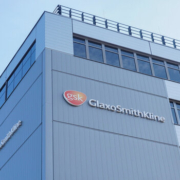Bristol Myers Squibb puts kibosh on trials of colorectal cancer candidate
Bristol Myers Squibb puts kibosh on trials of colorectal cancer candidate
Published: Dec 18, 2023
By Tyler Patchen
BioSpace
Bristol Myers Squibb is putting a stop to a trial investigating what it calls the Opdulag combination, a pairing of Opdivo (nivolumab) and relatlimab, in patients with microsatellite stable metastatic colorectal cancer.
In an announcement on Friday, BMS said that data from the Phase III trial of the combination, known as Relativity-123, was examined by an independent data monitoring committee, which found that the trial would not reach its primary endpoint. BMS stated that there were no safety issues and that the safety profile was consistent with other combination studies.
“Metastatic colorectal cancer is a challenging cancer to treat with high unmet needs. Though there have been advances in treating patients with microsatellite instability-high (MSI-H)/deficient mismatch repair (dMMR) colorectal cancers, patients with microsatellite stable (MSS) tumors continue to have limited treatment options in later lines of therapy,” Jeffrey Walch, vice president and global program lead at BMS, said in the company’s statement. “While we know immunotherapies have historically demonstrated limited efficacy in MSS colorectal cancers, we had hoped to demonstrate meaningful clinical benefit in this patient population and are disappointed in this outcome.”
Walch added that BMS will continue its work on developing immunotherapies in colorectal cancers but did not provide any details.
BMS also said it will continue investigating the combination as a treatment for other tumors. The results will not impact its approved indication for unresectable or metastatic melanoma patients. The pharma plans on sharing the data with investigators to determine the next steps for patients enrolled in the trial. BMS said it will also share the data with the scientific community.
The Opdualag combination was approved last March by the FDA after a Phase III trial found a statistically significant improvement in progression-free survival in patients with unresectable or metastatic melanoma. Since its approval, Opdualag has been a decent earner for the New York–based pharma, bringing in $166 million in sales in Q3 of 2023.
BMS has unveiled several pieces of data this month, releasing data from its Phase III CheckMate-8HW trial showing the first-line potential of Opdivo and Yervoy in colorectal cancer; that trial achieved statistical significance. Also this month, data from BMS’s and 2seventy bio’s CAR-T cell therapy for multiple myeloma indicated that the treatment did not statistically significantly extend the lives of patients compared with standard of care.
Source: BioSpace







